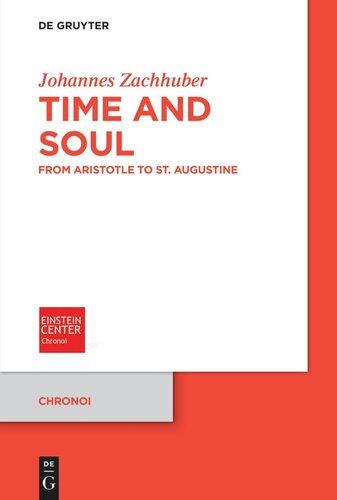

Most ebook files are in PDF format, so you can easily read them using various software such as Foxit Reader or directly on the Google Chrome browser.
Some ebook files are released by publishers in other formats such as .awz, .mobi, .epub, .fb2, etc. You may need to install specific software to read these formats on mobile/PC, such as Calibre.
Please read the tutorial at this link: https://ebookbell.com/faq
We offer FREE conversion to the popular formats you request; however, this may take some time. Therefore, right after payment, please email us, and we will try to provide the service as quickly as possible.
For some exceptional file formats or broken links (if any), please refrain from opening any disputes. Instead, email us first, and we will try to assist within a maximum of 6 hours.
EbookBell Team

0.0
0 reviewsOpen Access
Can time exist independently of consciousness? In antiquity this question was often framed as an enquiry into the relationship of time and soul. Aristotle cautiously suggested that time could not exist without a soul that is counting it. This proposal was controversially debated among his commentators. The present book offers an account of this debate beginning from Aristotle’s own statement of the problem in Book IV of the Physics. Subsequent chapters discuss Aristotle’s Peripatetic followers, Boethus of Sidon and Alexander of Aphrodisias; his Neoplatonic readers, Plotinus and Simplicius; and early Christian authors, Gregory of Nyssa and Augustine. At the centre of the debate stood the relation between the subjective time in the soul and the objective time of the cosmos. Both could be seen as united in the world soul as the seat of subjective time on a cosmic scale. But no solution to the problem was final. No theory gained general acceptance. The book shows the fascinating variety and plurality of ideas about time and soul throughout antiquity. Throughout antiquity, the problem of time and soul remained as intriguing as it proved intractable.